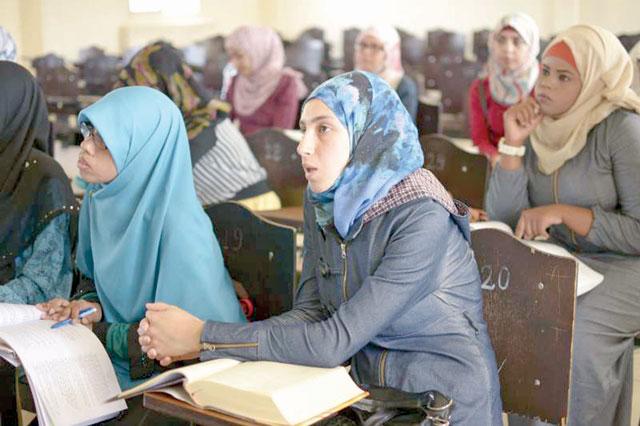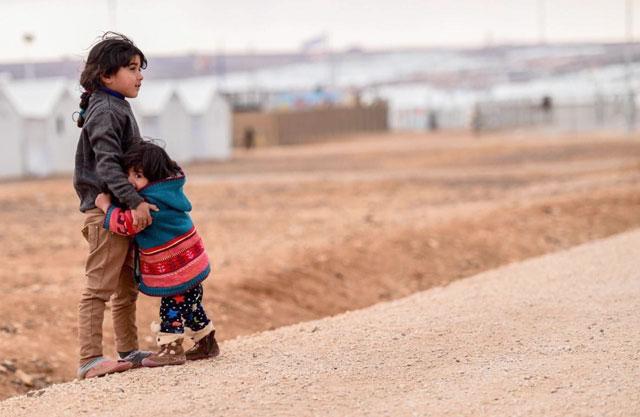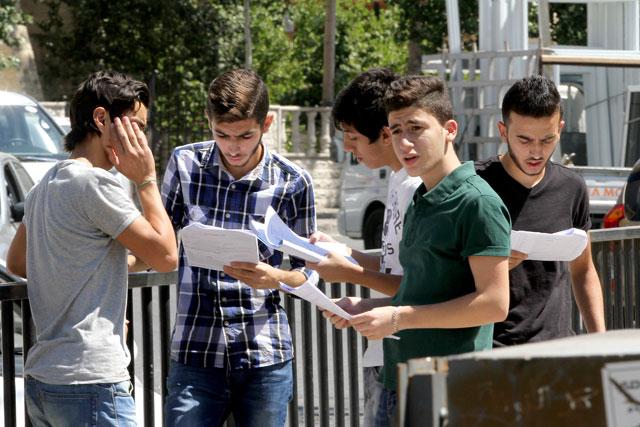You are here
Tertiary education remains limited for refugees as Tawjihi results released
By Elizabeth Turnbull - Aug 01,2019 - Last updated at Aug 01,2019

Students during an Arabic literature class at Al al-Bayt University in Mafraq. Despite a higher than global average of young refugees attending tertiary education in the region, only 5 per cent of those eligible age doing so, according to a recent UNHCR report (Photo courtesy of UNHCR)
AMMAN — While national basic education is free for refugee children, there are currently limited opportunities for refugees to attend tertiary education, according to a recent UNHCR report.
"This week saw refugee students all over the country pass their final Tawjihi exams," UNHCR spokesperson Lilly Carlisle told the Jordan Times on Tuesday. "Yet opportunities to access tertiary education remain limited."
For students whose university studies were abridged because of conflict and for those who have graduated from secondary school, a lack of documentation, mobility, language barriers and complicated higher education applications make pursuing a degree or certificate past secondary education difficult, the report said.
“Over the past years Jordan has made a strong commitment to support access to education for refugee children no matter their nationality such as through increasing the number of schools, easing registration procedures and supporting catch-up classes," Carlisle said.
"Despite this many children who arrived at the beginning of the crisis are now finishing their schooling and await an uncertain future."
In 2017, 5 per cent of eligible Syrian refugees were enrolled in universities across four of the largest host countries of Turkey, Lebanon, Jordan and Iraq, according to the UNHCR report on refugee education.
While this is an improvement over the global average of 1 per cent of youth, there remains a huge gap compared to global enrolment in higher education, which is 37 per cent, the UNHCR said.
According to the UNHCR report, the sustained nature of refugee crises requires a strategic approach in order to provide education to such populations.
In addition to working on refugee inclusion under a strategic education plan, inter-agency coordination, community-based education, technical, vocational and skills training, the UNHCR is offering 40 scholarships under the DAFI scholarship programme this academic year, and applications will remain open until August 8, according to Carlisle.
"Since 2007, over 800 refugee students have been able to pursue their higher education at Jordanian universities through this programme," Carlisle said. "This year is no different."
Related Articles
AMMAN — Forty scholarship slots under the Albert Einstein German Academic Refugee Initiative (DAFI) programme are available for refugees of
AMMAN — As many refugee students in Jordan completed their first week back at school, the UNHCR, the UN refugee agency, on Thursday released
AMMAN — As the General Secondary Education Certificate Examination (Tawjihi) summer session commences, students fear that long hours of fast













